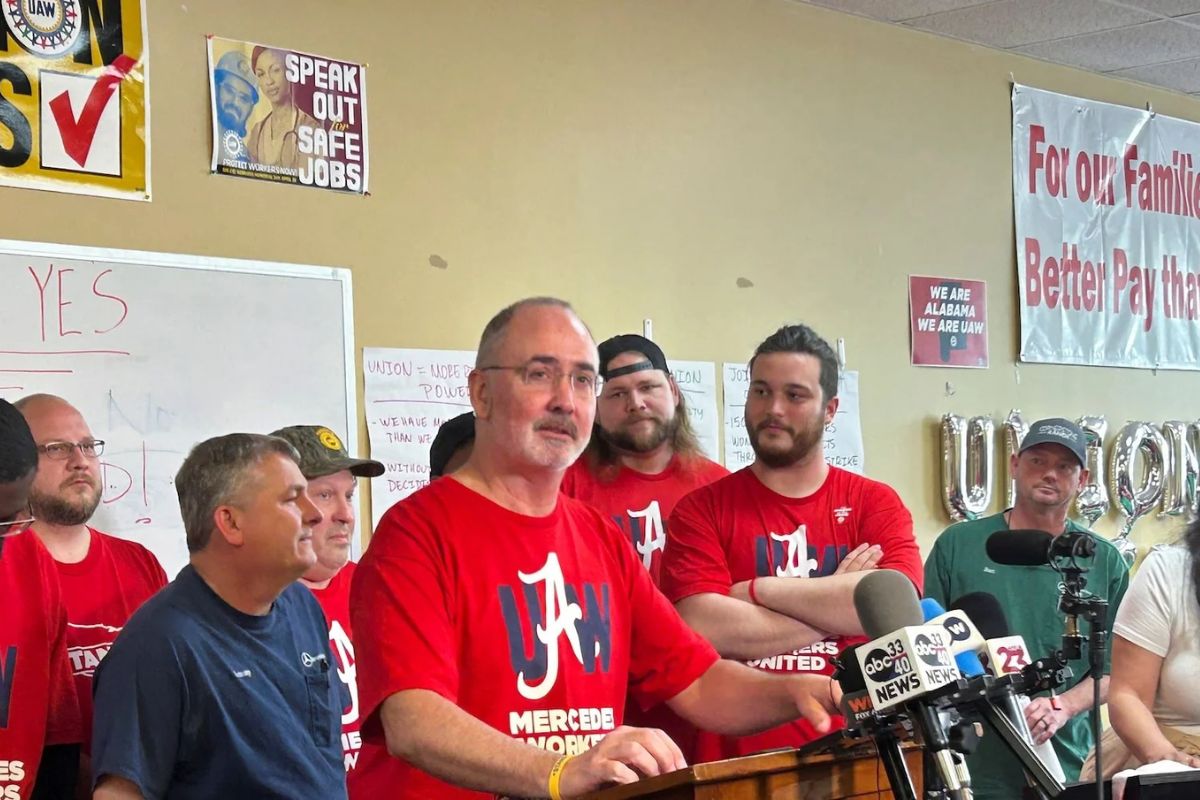Alabama Mercedes Workers Deal Blow to UAW: The recent decision by Alabama Mercedes workers to reject unionization efforts has sent reverberations through the UAW, raising concerns about the organization’s strategies and appeal in anti-union territories. The complex interplay of factors contributing to this setback demands a closer examination of the UAW’s approach and influence in the Southern region.
As the union faces a pivotal moment in its quest for expansion and relevance, the implications of this defeat extend beyond the confines of a single plant, prompting critical reflections on the future direction and viability of organized labor in the South.
U.S. Workers Reject Unionization Efforts at Mercedes-Benz Plant in Alabama
The resounding rejection of unionization efforts by U.S. workers at the Mercedes-Benz plant in Alabama marks a notable setback for the United Auto Workers (UAW) and their ambitions to expand their influence in the Southern region of the United States. This unexpected outcome dealt a blow to the UAW, especially following their recent successes at the Volkswagen plant in Tennessee.
The failure to unionize the Alabama plant raises questions about the UAW’s strategy and appeal to workers in the South. The rejection highlights potential challenges faced by the UAW in gaining traction in traditionally anti-union states. It also underscores the complexities of labor relations in a region historically resistant to organized labor.
The UAW’s inability to secure unionization at the Mercedes-Benz plant in Alabama may indicate a need for the union to reassess its approach and tactics when targeting Southern states. This defeat serves as a reminder of the obstacles unions encounter in areas where labor laws and attitudes towards unionization differ significantly from those in other parts of the country.
Factors Contributing to the Loss
Numerous significant factors played a pivotal role in the defeat of the unionization efforts at the Mercedes-Benz plant in Alabama. One essential factor was the lack of familiarity among workers with the union, the United Auto Workers (UAW), and its potential benefits.
Additionally, Mercedes-Benz actively opposed the unionization campaign, creating a challenging environment for pro-union advocates. The company displayed anti-union signs within the plant, influencing workers’ perceptions and potentially dissuading them from supporting the UAW.
Furthermore, the involvement of anti-union firms hired to discourage workers from joining the union further complicated the situation. These firms likely utilized persuasive tactics to sway employees against unionization, contributing to the overall defeat of the unionization efforts.
The combination of worker unfamiliarity, Mercedes-Benz’s resistance, and the anti-union campaign collectively played a significant role in derailing the UAW’s plans at the Alabama Mercedes-Benz plant.


ALSO READ: UAW’s Crucial Challenge: Alabama Mercedes Plant Vote Looms
Uncertain Future for UAW
Amidst the recent defeat at the Mercedes-Benz plant in Alabama, the United Auto Workers (UAW) face an uncertain future, prompting critical analysis of their strategies in the Southern region. The setback at Mercedes has cast doubt on the effectiveness of the UAW’s approach, despite recent successes in Detroit and Chattanooga.
The union’s hopes of expanding its reach to other automakers like Toyota and Tesla now face increased challenges following the loss. The defeat at Mercedes not only hinders the UAW’s momentum but also raises questions about the viability of their tactics in the South.
Moving forward, the UAW must reevaluate its strategies and consider the factors that contributed to the unsuccessful unionization attempt at the Mercedes-Benz plant. The uncertain future for the UAW in the wake of this defeat underscores the need for a thorough reassessment of their approach in the Southern region.
As the union navigates through this challenging period, a critical examination of their tactics becomes imperative to secure a more stable footing in the face of future organizing efforts.
Political and Corporate Influence
Influenced by political opposition and corporate strategies, the outcome of the unionization vote at the Mercedes-Benz plant in Alabama revealed the significant impact of external forces on the workers’ decision-making process.
The involvement of six U.S. governors, with Alabama’s Kay Ivey leading the charge against unionization, underscored the political pressure faced by the workers. These governors argued that unionization could impede the growth of the auto industry in the region, further complicating the workers’ choice.
Additionally, Mercedes-Benz’s overt anti-union stance, evident through signage discouraging unionization and the hiring of anti-union firms, added another layer of influence on the workers’ vote. Despite allegations of misconduct, Mercedes-Benz maintained its position on fair elections and emphasized its commitment to direct communication with its employees.
The convergence of political opposition and corporate tactics highlighted the complex web of external forces that shaped the outcome of the unionization vote at the Alabama Mercedes-Benz plant.
News in Brief
The rejection of unionization efforts at the Mercedes-Benz plant in Alabama reflects a significant setback for the UAW. This highlights the challenges faced in expanding influence in anti-union states. Factors such as worker unfamiliarity with UAW benefits, company resistance, and anti-union campaigns played a role in the outcome.
A thorough reassessment of strategies and approach in the Southern region is necessary for the UAW to regain momentum. This is crucial to secure future stability and success.

